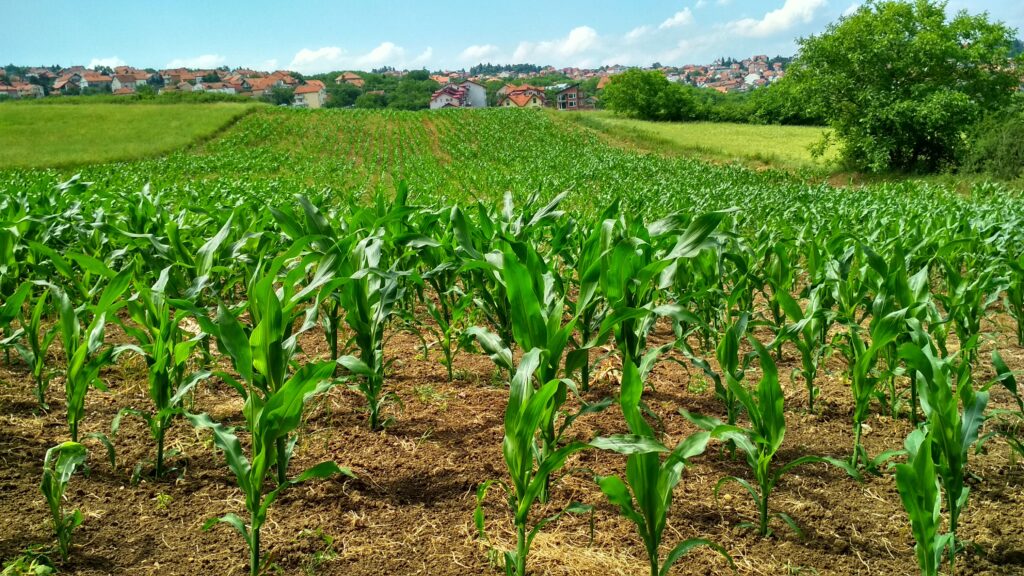In recent years, there has been a great emphasis on recent college graduates who, regardless of their academic performance, encounter challenges in finding significant career possibilities in the job market. There is a noticeable increase in youth unemployment rates among graduates in Africa, especially within the formal sector, as reported. This is primarily due to limited opportunities for personal and professional growth.
However, a revolutionary trend known as agripreneurship has evolved, bringing in a new generation of agricultural entrepreneurs. Future farming trends are significantly influenced by individuals with expertise in agribusiness. These are people who have a strong interest in agriculture and business. Of this vibrant generation, young farmers are particularly notable for being the engine of the agriculture sector’s comeback.
The term ‘agripreneurship,’ blending ‘agriculture’ and ‘entrepreneurship,’ refers to an innovative and sustainable approach to farming. Once seen to be a field dominated by older people, agriculture is seeing a renaissance as more and more young people are becoming involved in agripreneurship. This acceleration is attributed to various factors converging, including heightened awareness of sustainable farming methods, evolving customer preferences, and technological advancements.

In order to address the problems of youth unemployment and underemployment in developing and emerging economies worldwide, agripreneurship—which is defined by entrepreneurial endeavours in agriculture—must be promoted.
Technology integration in agriculture is a major factor contributing to the growth of young agripreneurs. Numerous tools and applications are now accessible to farmers by the digital era to help them make data-driven decisions, maximise resource use, and increase output. Young farmers are using technology to turn traditional farming into a cutting-edge, productive industry. This includes automated machinery and precision agricultural practices.
Furthermore, a commitment to sustainability is integral to the ethos of agribusiness. Young farmers increasingly embrace green agricultural technologies like organic farming, agroforestry, and water-efficient irrigation techniques. This ensures the long-term sustainability of agricultural ecosystems and meets the growing customer demand for responsibly produced food. Agripreneurs understand the need to strike a balance between environmental conservation and profitability, resulting in a harmonious farming method that is consistent with modern ideals.
The rise of agripreneurship among the younger generation is also a response to the evolving dynamics of consumer preferences. As consumers become more conscious of the origin and quality of their food, there is a growing demand for locally sourced, organic, and sustainably produced agricultural products. Young agripreneurs, attuned to these shifts, are well-positioned to cater to this demand, creating niche markets for specialized and high-quality produce.

Apart from meeting consumer demands, agribusiness offers new farmers a way to overcome obstacles in entering the market. Aspiring farmers have always faced barriers in gaining access to capital, land, and market networks. Agribusiness concepts often encompass innovative financing strategies, cooperative farming projects, and direct-to-consumer sales channels. These models present a more practical and profitable way for young farmers to get started in the agriculture industry.
Aspiring individuals contemplating a career in agriculture draw inspiration from the success stories of young agripreneurs. These people not only support rural development and food security, but they also question the conventional wisdom associated with farming. They are reimagining agriculture as a dynamic, fulfilling career that defies convention thanks to their entrepreneurial drive.
Agripreneurship serves as a platform for new farmers to overcome market entry barriers while addressing consumer demands. In the past, prospective farmers faced obstacles while trying to obtain funding, land, and market connections. Agribusiness concepts can include direct-to-consumer sales channels, cooperative agricultural programmes, and creative financing strategies. These models offer young farmers a practical and profitable starting point in agriculture.
Sources




